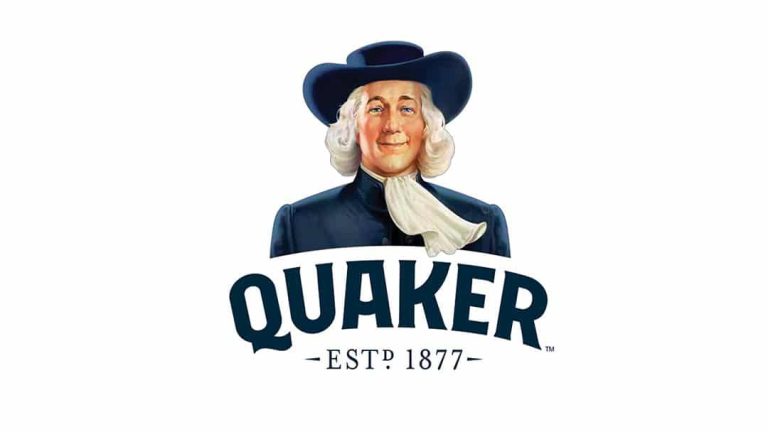3 de mayo 2022

Children of Exile: The Births “Sowing Hope” in the Camp of Nicaraguan Farmers

PUBLICIDAD 1M
PUBLICIDAD 4D
PUBLICIDAD 5D
Nicaraguan company had to pay more taxes, more expensive electricity bills, and invest in a climate of insecurity until it could no longer afford it

The global logistics crisis, coupled with the perverse effects of the 2019 tax reform in Nicaragua; the deterioration of the business climate; and the prevailing legal insecurity in the country, combined to force the closure of Cereales de Centroamérica S.A. (Cersa), which caused the unemployment of some 150 people, according to four sources who spoke to CONFIDENCIAL on condition of anonymity.
Cersa was one of the two Central American companies that processed the oat grains that arrived from Chile or Canada, to supply El Salvador, Honduras, Nicaragua, Costa Rica, and Panama with Quaker brand products, owned by PepsiCo, a transnational company that also owns Pepsi, Doritos, Lays, Gatorade, Lipton, etc. brands. The company covers part of the North American market with another plant in Guatemala.
About four years before Cersa, DASA, a company dedicated to the transportation of oats sold in the local market, also went under. A former Cersa employee, who lost his job when the company closed and asked to be identified as “Juan Carlos”, said that he and his colleagues witnessed the harassment that the Mayor's Office of Managua and the Ministry of Health (Minsa) applied against DASA until the owners decided to close it.
“They came to demand that the company invest in warehouses or in patios, with the excuse that it was to improve sanitary aspects, but it was done to force DASA to close, which is what happened in the end. Cersa still had a contract with Quaker, so they continued working, now with a new distributor,” said Juan Carlos.
Although Cersa was able to continue working for the transnational company, the global logistics crisis, which was a result of the covid-19 pandemic, put the Nicaraguan company in a situation that would lead to bankruptcy. The lack of containers, the rise in freight rates, and the small size of the operation running in Managua, showed PepsiCo executives that it was time to make changes.
The executive of a national agri-food company, who asked to be identified as “Javier”, explains how the complex global logistics chain collapsed as a result of the world crises of recent years (Covid-19, the war in Ukraine, the closure of the Chinese port of Shanghai, and the time that the container ship Ever Given remained stranded in the Suez Canal).
“The supply chains (production, inputs, transportation, fuels, availability of ships and containers) of agricultural raw materials are supersaturated, and that includes oats, so the most logical thing to do is to consolidate logistics in a few places, to make it easier to move them around the world. If you are a country with a very small production, shipping lines have little incentive to include you in their schedule,” he explained.
That's what happened to Cersa. The administrator of a company that processes and distributes food in the country, explained that, after many years of processing for Quaker, the numbers were no longer favorable for Cersa's interests, “due to a logistical issue: they needed their operation to be bigger, to face the cost of raw material and double freight, because they re-exported the oats”.
In reality, it was more than a logistical problem, admits this administrator, recalling the high tax burden that companies in Nicaragua must face; the general insecurity that the country exhibits, and the high cost of electricity, which is a determining factor in any industrial process like this one, which applies heat to the grain; grinds it, fortifies it with iron, vitamins, calcium... to then package and distribute it.
“PepsiCo, which owns the brand, did the numbers and saw that it was better to close its operation in Nicaragua and take it to Chile - where the cereal is grown - instead of continuing to work with Nicaragua, where it faced too high costs. The option was to put money into that plant to make it efficient, but you have to think twice about putting money into Nicaragua,” said an industrialist familiar with the operation.
Having experienced the process from the inside, “Juan Carlos” reports that this year, Cersa began receiving smaller and smaller shipments and processing fewer orders. His perception is that “Quaker looked for a way to continue guaranteeing its product, and continued working with Chile”.
Although it did not completely abandon Cersa, the decrease in orders led it to cease operations in February.
“Cersa only worked for Quaker. It was exclusive to them. Quaker specified how to make the mix, how to package and bundle the product, where and when to ship the orders, etc. When the company closed, more than 150 mechanics, electricians, technicians, truck loaders, packers, maintenance personnel, engineers, warehouse workers, administrative personnel, forklift operators, etc., were left without jobs,” he lamented.
This article was originally published in Spanish in Confidencial and translated by our staff
PUBLICIDAD 3M
Periodista nicaragüense, exiliado en Costa Rica. Durante más de veinte años se ha desempeñado en CONFIDENCIAL como periodista de Economía. Antes trabajó en el semanario La Crónica, el diario La Prensa y El Nuevo Diario. Además, ha publicado en el Diario de Hoy, de El Salvador. Ha ganado en dos ocasiones el Premio a la Excelencia en Periodismo Pedro Joaquín Chamorro Cardenal, en Nicaragua.
PUBLICIDAD 3D